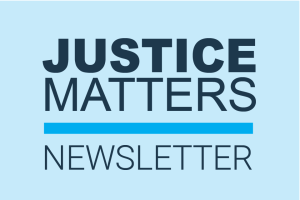Archival Notice
This is an archive page that is no longer being updated. It may contain outdated information and links may no longer function as originally intended.
By Sunny Schnitzer, Policy Advisor (Courts, Communities, and Strategic Partnerships), Bureau of Justice Assistance
There have been alarming spikes in hate crimes and threats of violence across the country. The Federal Bureau of Investigation (FBI) released hate crime statistics for 2021 earlier this year. The report showed that over 10,000 hate crimes were reported to law enforcement—the highest number reported in a single year. Unfortunately, most hate crimes are not reported, which means this number is just a fraction of the hate crimes committed that year.
Hate crimes have devastating effects beyond the harm inflicted on victims. These crimes reverberate through families, communities, and the entire nation as others fear that they too may be threatened, attacked, or forced from their homes because of what they look like, who they are, where they worship, who they love, or whether they have a disability.
The individual actions of 911 operators, first responders, investigators, prosecutors, victim advocates, community leaders, and faith leaders make our communities more resilient against the intended impacts of hate crimes. The Bureau of Justice Assistance (BJA) is committed to helping law enforcement agencies and community organizations address and prevent hate crimes.
Through the Matthew Shepard and James Byrd, Jr. Hate Crimes Program, BJA provides funding to state, local, and tribal law enforcement and prosecution agencies and their partners to educate practitioners and the public, enhance victim reporting tools, and investigate and prosecute hate crimes. While the justice system has an important role to play in addressing hate crimes, BJA also recognizes the unique and critical power of community institutions to define community values and chart a path for prevention and healing. Through the Community-based Approaches to Prevent and Address Hate Crimes Program, BJA provides funding to support comprehensive, community-based approaches to prevent and address hate crimes. Programs could include public awareness campaigns, education and outreach, trauma-informed services, and preparedness training.
Foundational to this work is the notion of trust: trust that police will answer our call; trust that prosecutors will seek charges that reflect the harm inflicted by hate-fueled actions; and trust that our communities will be empowered to lead efforts to prevent hate crimes. However, trust is not gained through good intentions—it is earned through the acknowledgement of past harm and the dedication to improve. BJA’s Emmett Till Cold Case Investigations and Prosecution Program helps justice agencies address the decades-old trauma caused by unsolved, racially motivated homicides committed prior to 1980. Through this program, state, local, and tribal law enforcement and prosecution agencies across the country are investigating, prosecuting, and facilitating resolution and healing from crimes that still haunt many communities.
Behind so many of these cases are a family, a community, and a country that has been wounded by the hate-driven loss of life. At BJA, we are humbled and honored to offer grant funding in the names of Emmett Till, James Byrd, Jr., and Matthew Shepard. The strength and power of their families and loved ones has established entire movements dedicated to eliminating hate crime in America.
It is in that spirit that we share this issue of Justice Matters with you. We hope you will take inspiration from our grantee stories, and we encourage you to apply for funding from one of these programs when BJA’s fiscal year 2024 solicitations are released.



